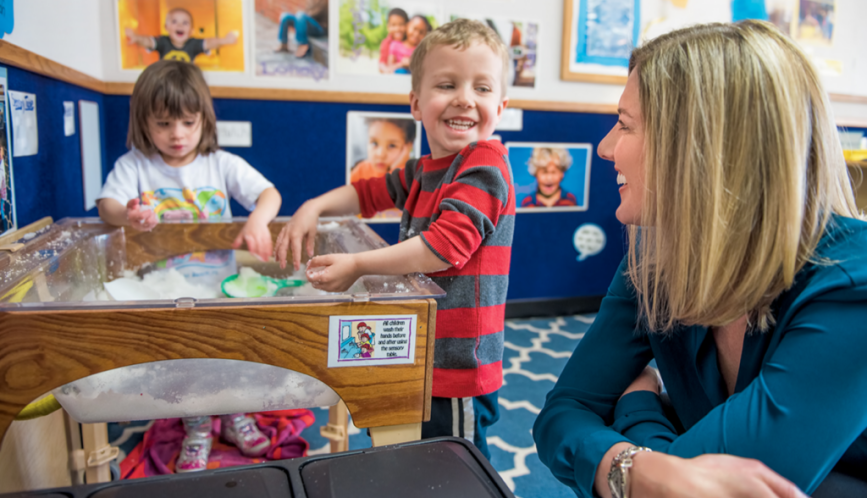IP network member Stephanie Carlson is a Professor at the Institute of Child Development, University of Minnesota. Trained as a developmental psychologist, Carlson is also a Co-Founder of Reflection Sciences. Her research interests include cognitive development, executive function, theory of mind, symbolism, and pretend play. She is particularly interested in how skills interrelate in the preschool period. Carlson received her Ph.D. from the University of Oregon.
Describe your area of study and how it relates to current policy discussions surrounding inequality.
I study the development of executive function (EF) in young children. This refers to the neurocognitive skills needed to pay attention and control your thoughts, actions, and feelings in pursuit of a short- or long-term goal. These skills take a long time to fully develop for everyone, but there is ample evidence that children of lower socioeconomic status and other risk factors such as institutionalized care at an early age, or prenatal exposure to alcohol, perform significantly worse on measures of EF. I have contributed to the standardization of measurement of EF with the Minnesota Executive Function Scale (MEFS). This tool lowered the floor on assessment to 24 months, which helps you see where children are on the continuum of growth, even if they are significantly delayed. Starting school with low EF skills has a poor prognosis. In fact, the achievement gap might begin with an “EF gap,” which is of interest to educators and policy leaders.
What areas in the study of inequality are most in need of new research?
It is not enough to simply document the early gaps. I hope researchers will get the funding they need to investigate systems-level approaches to reducing them. For example, my students and colleagues and I are keenly interested in understanding the role of the environment in the development of EF skills, including nutrition, sleep, caregiving styles, language stimulation, play, stress/trauma, media/technology, and culture. We hope to combine and evaluate “best practices” in a large-scale prevention study.
What advice do you have for emerging scholars in your field?
I think it helps to first get a strong foundation in basic experimental research methods and human development. But then remain open to inter-disciplinary research and making those research-policy connections. No single field is going to solve inequality on its own!



